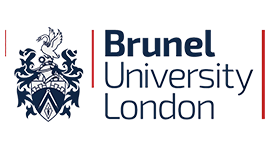The course will cover:
Enterprise Modelling, which cultivates skills and knowledge related to business, conceptual and software modelling. Example topics of study include different paradigms for modelling (including business services, processes and objects), techniques for modelling the business domain and business behaviour, the relationship between business modelling and software modelling and the use of the Unified Modelling Language (UML).
Systems in Context, which aims to develop a critical understanding of information and information systems and the role that each plays in the context of the modern working environment and society. Example topics of study include: concepts of ‘information’ and ‘information systems’, information revolutions and their impact, approaches to the implementation and use of information systems in modern working environments.
Research Method, which introduced methods of data collection and analysis when conducting empirical research. This research can take place in an organisational setting. Both in the private or the public sector. This module is essential preparation for the dissertation.
Organisational Change and Business Improvement, which aims to develop a reflective understanding, alongside the knowledge and skills necessary to the implementation of new procedures or technologies intended to realign an organization with the changing demands of its business environment (or to capitalise on business opportunities). Example topics of study include: understanding and justifying change, change management, managing technology risks, ethical issues in change.
ICTs and Strategic Change which aims to develop a critical awareness of the central issues and challenges in strategic approaches to information systems. Example topics of study include the nature of strategic planning and its key components, the relationship of IS/IT strategy to organisational aims and strategy, the assumptions of traditional planning approaches to strategic ICT adoption and state-of-the-art responses to issues and challenges.
Systems Project Management, which aims to develop a critical awareness of the central issues and challenges in information systems project management. Example topics of study include traditional project management techniques and approaches, the relations between projects and business strategy, the role and assumptions underpinning traditional approaches and the ways in which the state-of-the-art can be improved.
Data Management and Business Intelligence, which aims to develop the knowledge and skills necessary to support the development of business intelligence solutions in modern organisational environments. Example topics of study include issues in data/information/knowledge management, approaches to information integration and business analytics. Practical aspects of the subject are examined in the context of the SAP Netweaver and Business Warehouse environment.
Business Integration, which aims to develop a critical understanding of the issues of integrating people, process and technology systems both within and across organisational contexts. Example topics of study include: the dimensions of business integration, collaborative working and its issues, virtual organisations, electronic markets and commerce policy.
Dissertation
In addition, you will be asked to produce a dissertation, which is an opportunity to build expertise in a more focused area that is of interest to you and which you may want to specialise in. The dissertation not only showcases your project management and subject specific skills to potential employers, but also serves as valuable experience and a solid building block for those wishing to pursue a PhD, on completion of their MSc. Your work will be individually supervised by a member of academic staff. You will be encouraged to critically examine the academic and industrial contexts of your research, identify problems and think originally when proposing potential solutions that serve to demonstrate and reflect your ideas.











